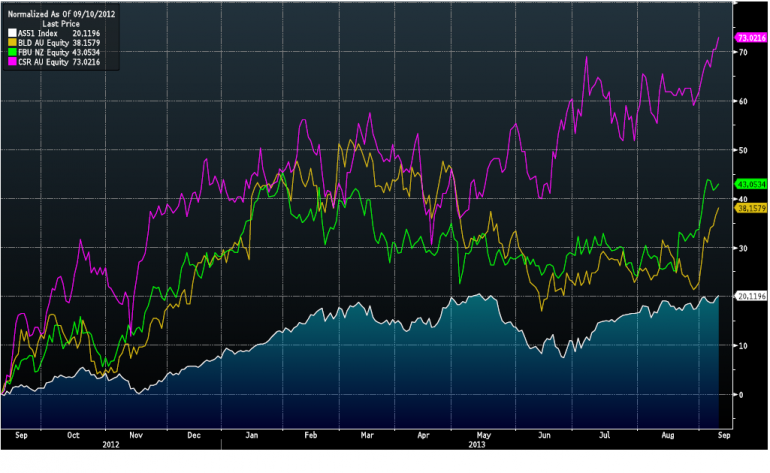Markets: Builders running out of puff
Tailwinds pushing domestic housing construction stocks higher over the past year could be on the verge of turning into headwinds.
Interest in dwellings requiring construction is central to how the construction sector will perform. Despite total loan commitments rising to a seasonally adjusted 1.1 per cent in July, new construction wasn’t a contributor.
Finance commitments for the construction of dwellings fell a seasonally adjusted 2.1 per cent in July from the prior month, after rising 0.7 per cent in June.
The Reserve Bank slashing 1 per cent from the official cash rate over 13 months hasn’t been enough to provide support to the construction sector. The number of finance commitments for construction of dwellings was 3.2 per cent lower in July than a year earlier.
It is not that there is a disinterest in home lending in general – as a whole it is trending upwards, helped by lower interest rates and supported by turnover of existing dwellings. It is just that new developments are not contributing to this.
Should the drop off in construction become more permanent, the stellar run of Boral Ltd (yellow line), CSR (pink line) and Fletcher Building Ltd (green line), could be set to come to a close. For comparison, the ASX 200 is the white line at the bottom.

If Boral’s cautious outlook for the Australian economy holds true, the sector could be due for a pullback. Boral warned it expects this financial year to be flat.
Compared with Boral and CSR, Fletcher Building has an advantage being exposed to both the Australian and New Zealand markets. With the housing market at full steam in New Zealand, they have some much needed diversification.
Strong cyclical leverage, combined with low interest rates should be supportive to the sector. However, the focus of the market should be on the ability of companies to grow their earnings, especially in what would be considered favourable market conditions in light of recent history.
The removal of the carbon tax may reduce carbon costs between $5 million and $15 million across the building materials sector, according to a recent UBS note. Considering there is no formal timeframe guidance from Tony Abbott and his government, this is not something we can immediately factor into share prices.
With Boral, CSR and Fletcher each hovering at around 20 times earnings, compared with a broader market average of 14 times, they look expensive, especially in light of subdued earnings growth over the year ahead. This could be the ideal time to take some profits off the top and look around for companies with strong earnings growth potential.
















